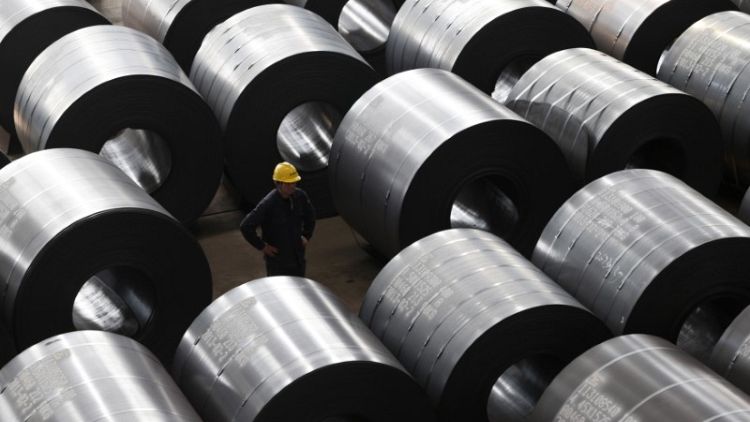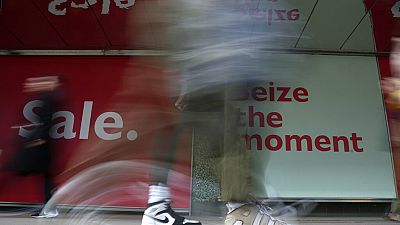BEIJING (Reuters) - China's factory activity likely expanded at a steady but modest clip in April, marking the second straight month of improving business conditions, as government growth-boosting measures buoy the vast manufacturing sector.
Continued signs of expansion, following surprisingly strong March data, would add to views that the world's second-largest economy is slowly regaining its footing after growth cooled to a near 30-year low last year.
But investors are closely eyeing leading indicators such as new orders for clues on whether the new-found momentum can be sustained, or switch into higher gear. Upbeat data in recent weeks has already prompted financial markets to scale back expectations of how much more stimulus will be announced.
The official Purchasing Managers' Index (PMI) is forecast at 50.5, unchanged from March's reading, which was the first expansion in four months, according to the median forecast of 25 economists.
The 50-point mark separates expansion from contraction on a monthly basis.
"Generally speaking, given higher total social financing in the first quarter, coupled with faster fiscal spending for infrastructure projects, the stabilising trend in the economy is set to continue," said Nie Wen, economist at Hwabao Trust, who forecast the PMI would rise to 50.8.
But some China watchers said growth may have moderated, as various one-off boosts to March factory readings taper off. Some manufacturers were believed to have built up inventory in March to take advantage of Beijing's announcement of value-added tax cuts that went into effect on April 1.
"After the VAT adjustment, inventories of raw material may fall by a certain extent, which could drive a pullback in April PMI," said Lu Zhengwei, chief economist at Industrial Bank, in a note on Sunday.
SOME ENCOURAGING SIGNS
In the latest sign that financial strains on larger companies may be easing, data on Saturday showed industrial profits grew in March for the first time in five months, driven by stronger sales.
But analysts note gains in production so far are likely being driven largely by stimulus, such as higher infrastructure spending, rather than a natural pick-up in demand.
The world's second-largest economy grew at a steady 6.4 percent pace in the first quarter, defying expectations for a further slowdown, as industrial production jumped sharply and consumer demand improved.
China is targeting economic growth of 6.0-6.5 percent this year, after growth last year cooled to 6.6 percent, weighed down by weak investment and the escalating trade war with the United States.
Export orders are likely to remain weak after contracting for 10 straight months in March, highlighting the toll that a months-long U.S.-China tariff war is taking as both sides push for a trade deal. Weaker demand globally is also a dampening factor, weighing particularly on high-value technology exports.
President Donald Trump said on Thursday that he would soon host Chinese leader Xi Jinping at the White House, setting the stage for a possible agreement on trade between the world's two largest economies.
U.S. Treasury Secretary Mnuchin told the New York Times that negotiations are in "the final laps" as he and U.S. Trade Representative Robert Lighthizer prepare to fly to Beijing this week for more talks.
A private business survey - the Caixin/Markit Manufacturing Purchasing Managers' index (PMI) - which focuses more on small and medium-sized Chinese firms - is expected to show growth quickened in April.
The Caixin PMI is forecast to pick up to 51.0 from 50.8 in March, as policymakers' efforts to channel affordable financing to struggling smaller firms appears to be bearing fruit.
The official PMI survey is due out on April 30, along with a sister survey on services. The Caixin manufacturing PMI will come out on the same day, and its services PMI on May 6.
(Reporting by Stella Qiu and Ryan Woo; Editing by Kim Coghill)



